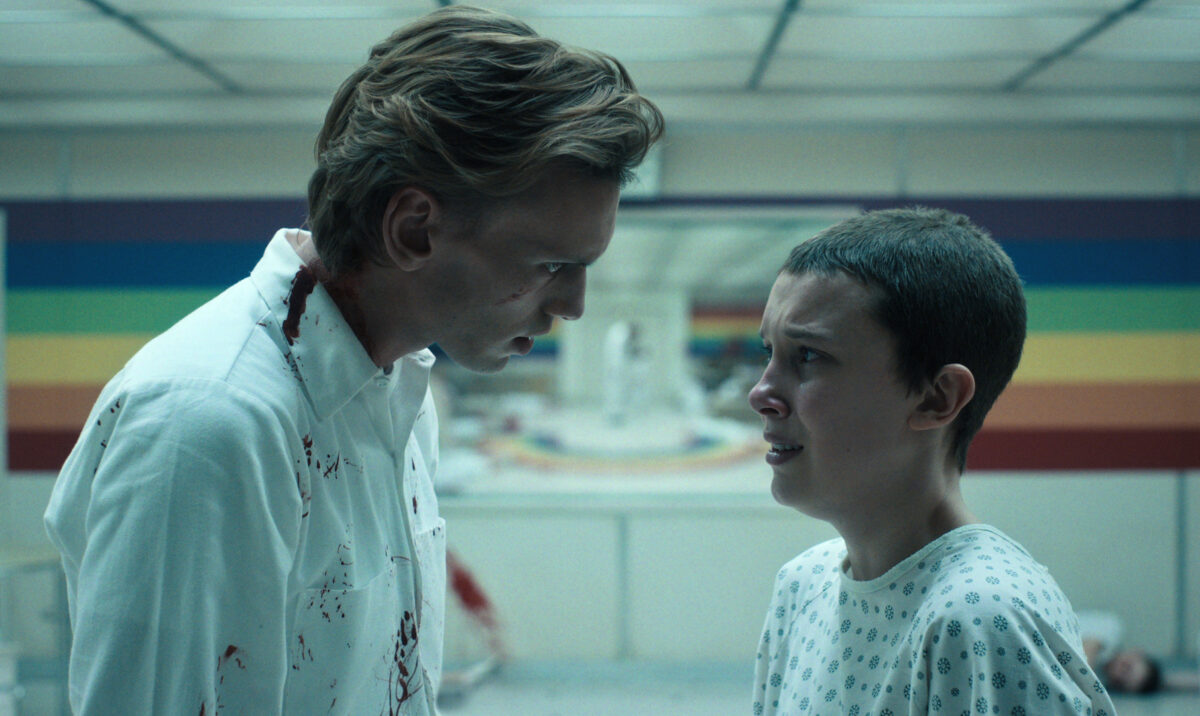
What do shows like “Beef,” “Stranger Things,” and “Wednesday” have in common? Aside from being some of the buzziest Netflix shows to hit the streamer in the last year, all of them boast impressive work from crafts teams that elevate the already great material to even greater heights.
At IndieWire’s Consider This Event June 3, several members of each show’s production team joined crafts reporter Jim Hemphill for an on-stage panel discussion on bringing the projects to life. On stage at the NeueHouse Hollywood were “Beef” editor Laura Zempel and composer Bobby Krlic, “Stranger Things” re-recording mixer/supervising sound editor Craig Henighan, and “Wednesday” composer Danny Elfman along with his co-composer Chris Bacon and music supervisor Jen Malone. After the panel, various participants — including Henighan, Zempel, Elfman, and Bacon — sat for one-on-one interviews with Awards Editor, Crafts and Animation Bill Desowitz, to discuss the process behind the shows in even more depth.
“Stranger Things”
For Season 4 of “Stranger Things,” Henighan’s two main tasks were creating the voice of the episodes’ main antagonist Vecna (Jamie Campbell-Bower), as well as the ticking grandfather clock that signals his arrival. For Vecna’s voice, he used some manipulation to alter Campbell-Bower’s voice, but mainly focused on dropping out all other sound from the show in order to convey how larger than life the character is.
“I wanted him to go down as one of the bad guys in history,” Henighan said. “I wanted his voice to be able to permeate every speaker when you’re watching it, so all the other sounds go away. The first scene we worked on was in episode one, so all sounds go away and all you hear [is] ‘Chrissy,’ and that whole voice is in every speaker and just takes over the soundstage.”
For the grandfather clock, Henighan started with just the script, which simply said “tick tok.” To make the sound distinctive, he used a cello string as the grandfather pendulum to give a creaky sound, and pitched down the chime of the clock and added a pitch envelope to give a gong-like sound. He later added a different, distorted chime recommended to him by show creators Matt and Ross Duffer, which completed the essential sounds of the clock.
“Per scene, it has a different vibe,” Henighan said. “Maybe we put a little more reverb on it, maybe we sort of highlight something.”
“Beef”
After nine episodes of cross-cutting between the stories of main characters Danny (Steven Yeun) and Amy (Ali Wong), “Beef” brings the complicated duo together for its finale, which also brings some unexpected surrealism to the storyline. For Zempel, editing the episode was enjoyable due to being able to work with Yeun and Wong together, but it also presented new challenges as an editor.
“As soon as I got the script and it started with two crows talking to each other, I knew we kind of had free rein to do whatever we want. So we had a great time experimenting with form and trying new things, but still keeping the core of our characters at the center of that episode,” Zempel told Desowitz.
Because the episode only focuses on one storyline, Zempel was able to focus intensely on the way that Amy and Danny’s dynamic changes, as the two go from enemies to friends. Zempel said that during editing, she tried to keep in mind the pair’s emotional state, as they’re stranded in the middle of nowhere hallucinating, and cut the episode in a way that kept the stakes of the situation apparent.
“We did a lot in the room working with [Lee Sung Jin], our showrunner, of moving some scenes around, and trying to just build their relationship that felt honest and authentic,” Zempel said. “It was just keeping the whole episode almost like a short film, because it was so different from the previous episodes of the season, we really focused on beginning to end.”
“Wednesday”
“Wednesday” represents the first time Elfman, who has done themes for shows like “Desperate Housewives” and “The Simpsons,” has composed the episodic score of a TV series. The experience reunited him with his frequent collaborator Tim Burton, although Elfman says there wasn’t much difference between making a show with Burton as opposed to making a film.
“It’s always a process of experimentation, in the beginning he doesn’t like to talk about his work, his projects at all,” Elfman said. “It’s kind of like just ‘do stuff, and let him respond.’ And since we’ve done this for 38 years, I kind of expect it. ‘Oh right, I’m starting from god knows where, and out of that god knows where I’m going to be doing a lot of different ideas and narrow him down to okay this seems to be working.’ It’s always a process, people think after this time we have a shorthand and it’s a piece of cake, but it really isn’t, even after all this time I still don’t know what’s going on in his head. It’s a very strange and interesting place.”
Bacon has also collaborated with Elfman numerous times on films such as “Dumbo” and “Dr. Strange and the Multiverse of Madness,” and brought experience composing for shows like “Bates Motel” to the show; he quipped that his subcredit on “Wednesday” was “the Danny whisperer.” He explained that, while working on the show, their collaboration was similar to the ones they did on films, where he built on the foundation that Elfman and Burton provided.
“Danny and Tim were given a lot of deference, rightfully so,” Bacon said. “When I came on, it was kind of the same thing. Danny and Tim established what the tone was going to be. The very first thing I heard was the main title to ‘Wednesday,’ and I was able to take that and build many things off of that.”
Check out more stories from IndieWire’s Consider This event here.













